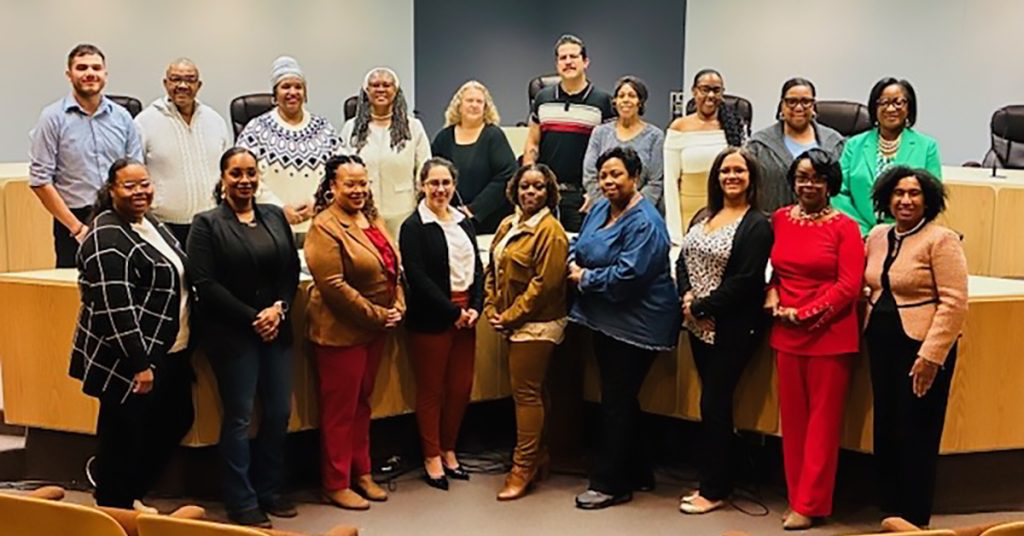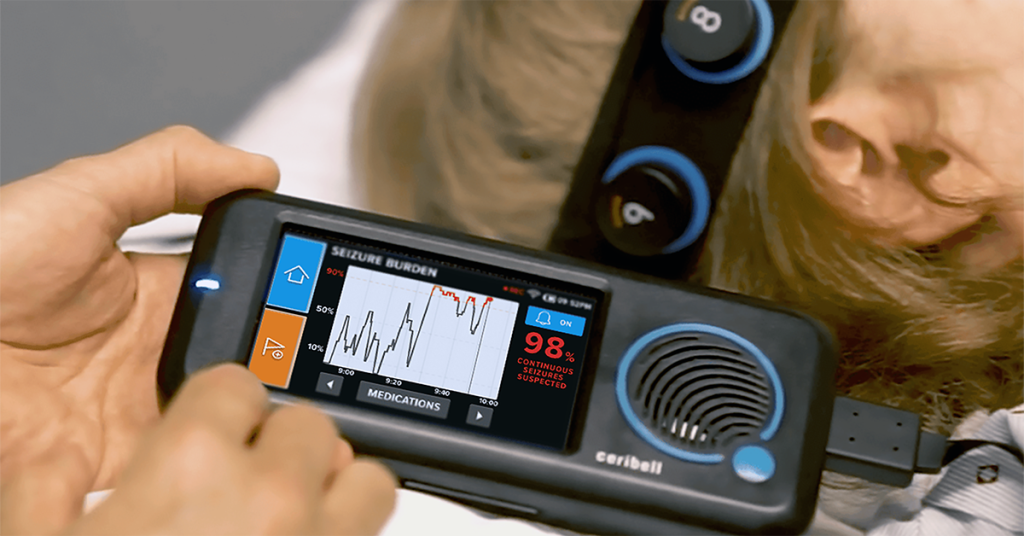With help from experts, companies take strides toward digital transformation
More than corn is growing in Northern Indiana’s productive soil.
Hammond Machine Works flourishes as its 70-person workforce bends, grinds and assembles precision metal parts for sale in a variety of industrial applications.
Peter Nau began working for the business in the 1970s and bought it from his father in the 1990s. He now is driving the company into the forefront of what some call the newest industrial revolution with his $2 million, 20-kilowatt, Eagle, iNspire 1530 F20.0 fiber optic laser cutter.
He first glimpsed the tool at a Chicago trade show. It offered what advocates of smart manufacturing are promising many businesses: “I wanted speed and repeatability,” Nau said.
But he said it exceeded his expectations.
“It captures a good portion of the outsourcing for bar- and cup-shaped parts. It improves our delivery to our customers, and it lowers costs,” Nau said.
In Michigan City, Luke Vandercar, general manager of Sanlo Inc., is preparing to accept delivery of a $200,000 6-axis industrial robot to automate the assembly of lanyards. The length of aircraft cable is used to tether tools in place or fuel tank filler caps, which prevent dripping and keep debris out.
“We have been mulling around this idea since we began having pandemic-related labor issues. This will allow us to be more competitive with imported products from overseas and help keep manufacturing in the U.S.,” Vandercar said.
Even Rockland Page, owner of Merrillville’s ROCKaBlock, is upgrading his graphic design shop.
“Now, I manually screen print T-shirts or sweatshirts. Depending on how much help I have, I might take all day or even a few days to screen 400 to 500 shirts.
“With an automatic press, I hope to go online this fall and knock out 500 shirts within two hours,” Page said.
The Indiana Economic Development Corp., a state government agency, is awarding $20 million in Manufacturing Readiness Grants this year to Indiana companies making innovative capital investments in smart technologies to improve capacity, productivity and competitiveness.
Hammond Machine Works, Sanlo and ROCKaBlock all have won grants as have about 100 other businesses from East Chicago to Elkhart.
Intelligent automation
Indiana is home to more than 9,300 manufacturers where 1 in 5 Hoosiers is employed, particularly at this end of the state. Tens of thousands more once worked in area factories until machines mass produced more with less manual labor.
Researchers, academics and visionary industrial associations have been arguing for years that our current technology is too limited to satisfy the quickly evolving global economy.
“We must have robotics, automation, smart sensors and AI (artificial intelligence), data analytics and machine learning,” said Maged Mikhail, department chair of Purdue Northwest’s engineering technology college.
His engineering colleague at PNW, Dean Mohammad Zahraee, agrees that change is coming, albeit with help from educational institutions.
“It is part of the digital transformation — Industry 4.0, using emerging technologies,” he said.
Zahraee said Purdue plans to open a smart manufacturing course of studies in Hammond as early as next year.
“We are in the middle of a great manufacturing sector in our state, and it’s our role to help with research and training an up-to-date workforce,” he said.
Other players in Indiana include Ivy Tech Community College, Indiana University, University of Notre Dame, Conexus Indiana, TechPoint, AnalytiXIN and the IEDC.
Pioneering grants
David Watkins, a senior vice president for IEDC, said the state’s grant program favors small to medium manufacturers.
“Large companies tend to have the talent and financing available to invest in automation themselves, but about 70 percent of our manufacturers have 20 employees or less,” he said. “We give them the opportunity to really lean into smart manufacturing.
Watkins also said projects that benefited from the program resulted in $1.6 million per project.
“About 80 percent of the awardees are achieving productivity gains,” he said. “Fully half of them have acquired new customers, new business and new markets they hope to get into.”
Georgian Simion is the lead manufacturing adviser of the Indiana Small Business Development Center and the grants program.
“I have the manufacturing and engineering expertise to tell them if it’s not a good project and why and how I can help otherwise,” he said. “They have to show how this technology and equipment is going to increase production capacity, bring more business and grow revenue.”
He said people have to be careful not to lock themselves into the wrong technology.
“It’s taxpayers’ money,” he said. “I have a responsibility to make sure this money is invested in meaningful projects.”
The program is so popular its funds were completely used last year, Watkins said.
“People are receptive to smart manufacturing,” he said. “That is why the grant program ran out of money last year. I get calls almost on a weekly basis from other states looking to replicate what we’ve done.”
Robots in demand
Some question whether grants and other efforts to encourage adoption of smart manufacturing processes are successful.
Mitch Landess, a vice president of Conexus Indiana, which helps administer the grants, said smart manufacturing is all voluntary with no impartial body to inspect factories and declare their innovative bona fide.
“It’s not like companies are certified to begin smart manufacturing or not,” he said. “It is a journey. Individual manufacturers are on individual journeys and need to take positive steps in that direction.
“We absolutely know companies are making capital investments in smart manufacturing technologies.”
More than 500 grant recipients across the state have spent a total of $813 million of their own money in automation vetted by the grant program in the past four years.
Nevertheless, Landess said, “We hired someone to look through all of the economic data, even keywords in available job placings to measure how Indiana stacks up in the national smart manufacturing drive.
“The results are kind of blah. The keywords in available job placings show up in only single digit percentages for digital skills. But then, this type of data may be lagging what’s really happening.”
Tim Keller, president of Hammond Tri-State Industries, which sells welding robots in Wisconsin, Michigan and Indiana, said the future of robotics automation in Northwest Indiana is bright.
“It’s not just my gut feeling. The sales data supports that,” he said. “Everybody is struggling with a shortage of welders and that is where we slide in.
“Robots are cheaper. The cost is down and the capabilities of the technology — the things they can do — has become very flexible.”
But there is reluctance.
“The number of inquiries we get is huge, but it is a different technology, and customers don’t think they have the skills within their plant to operate them, which is why we do the training, so when we leave, you will be able to roll,” Keller said.
A new vocation
Nau of Hammond Machine Works, is in a similar situation.
“We’re in a phase where we need young employees with an aptitude and an attitude for the machining trade.”
David Notary, interim director of La Porte County Career and Technical Education in Michigan City, said public education swung from preparing students for trades in the 1990s to college prep.
“The trades are now facing a workforce shortage because of retirements,” he said. “Those now trained in the trades could move out to Las Vegas where they are begging for workers and could earn between $110,000 and $120,000 a year.”
Notary said his school district has maintained a robust vocational program over the years and is ramping up a smart manufacturing curriculum that will start in the 2025-2026 school year.
Classes that will be offered include robotics, artificial intelligence, cybersecurity, big data, computer-aided manufacturing and smart sensors.
“Our Industry 4.0-smart manufacturing program will train kids on sensors, robotics and laser demonstrator machines so they can work on multi-million-dollar robotics and keep all the automation on the factory lines going,” he added.
Ivy Tech, formerly Indiana Vocational Technical College, is gearing up to train future factory workers, Matthew Copeland, an instructor at its Elkhart campus said.
“We’ve been doing advanced automation robotic technologies for a long time,” he said. “As far as the smart manufacturing angle with big data and computerized integration, we started that about five years ago.
“The idea is to control the whole factory network, not just an individual piece of equipment, so robot A can let robot B know when it is done so robot B can start its job.”
That connectivity also comes in handy when a machine needs to be fixed.
“A huge part of that control is communication the automation has with managers and maintenance,” Copeland said. “The sensors tend to know when the machine is going to fail. They will send you an email from one of the sensors that its camera lens is getting dirty; come clean me.”
He said the need for manufacturing jobs will continue but require some different skills.
“At Ivy Tech, we are more at the level of maintaining robotics, and we already have a high demand for robot techs and are going to need a lot more in the future,” he said.
Copeland said robots get sick too.
“I hear people say robots never call in sick,” he said. “Anybody who says that has never been in industry because robots get sick all the time. We need robot doctors as much as we need people doctors.”
He said Ivy Tech has a simulation for a mechatronics smart factory.
“Our lab has several different bots that network together and a semi-autonomous remote-operated robot that shuttles from one station to the next,” Copeland said.
Best practices
The University of Notre Dame is using its reputation as a research center to teach smart manufacturing in the classroom not only to undergrad and graduate students, but also employees of local manufacturers, said Senior Associate Dean Nicholas Berente, faculty director of the university’s Industrial Labs.
“The Industry Labs is where we work with local industry to bring them up to smart manufacturing practices,” he said. “We have a laser cutter and 3-D printers and veteran engineers in residence who are alongside students.
“Some ND students visit South Bend workplaces like Lippert RV to be immersed in automation and robotics.”
Daryl Peterson is the managing director of Notre Dame’s Engineering Innovation Hub.
“We are trying to make sure students are comfortable working in a manufacturing environment,” he said. “The industry wants students to have the theory, but just enough of the practical so they aren’t afraid of the shop floor.”
Purdue Professor Mark Ward, director of its Data Mine in West Layette, agrees.
“We have a genuine pipeline between colleges and the manufacturing sector,” he said. “The companies just can’t wait to hear what’s going on in our lab. The research and innovations at Purdue are astounding, but a lot of cool stuff is coming from industry itself. There is a ton of value for our students working with our industry partners.”
Berente said we live in the “information age.”
“At (Notre Dame’s) Mendoza College of Business, we want our students to manage smart factories. They tend to go to work with big strategy consulting firms to analyze and streamline a company’s processes,” he said.
Dennis Trinkle, a senior vice president for Indianapolis-based digital network facilitator TechPoint, said his organization is helping companies give their factories the smarts to compete in this new environment.
Ward said Purdue has a similar outlook.
“In the past there wasn’t that seamless integration across business units,” he said. “Companies nowadays pool information from many parts of the business to work on supply chain issues, predicting failure, a proactive rather than a reactive approach.”
Trinkle said AI is transforming many of a factory’s processes.
“AI is the brains behind manufacturing devices, sales, finance, accounting, human resources, hiring and retention,” he said. “We are going to see increasing sophistication in automated machinery used in manufacturing and increasingly sophisticated robots powered by AI.”
But, he said, the human touch will still be important.
“We will see human beings working side by side with technology as final decision makers, but a lot of routine work is going to be solvable quickly and efficiently by AI,” he said.
Purdue University Professor Ajay Malshe, co-chair of Purdue’s XMO (eXcellence in Manufacturing and Operations), said the future will depend on highly trained employees.
“With the changes in the geopolitical landscape, young people entering the workforce and many about to retire, we have to have resiliency supported by digital investment, as well as in hardware and a newly talented workforce,” he said.
“What other option do we have?”
Read more stories from the current issue of Northwest Indiana Business Magazine.













